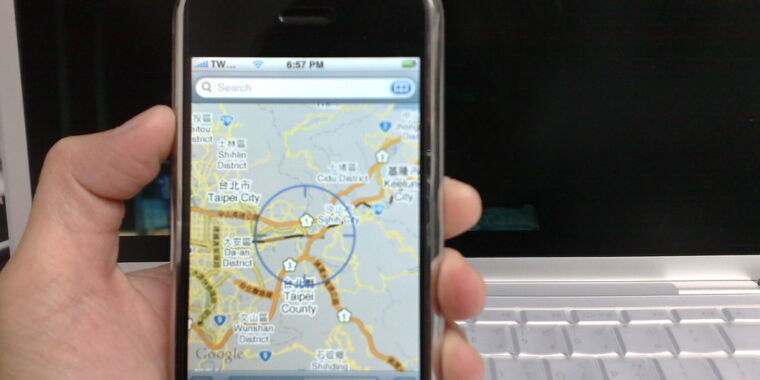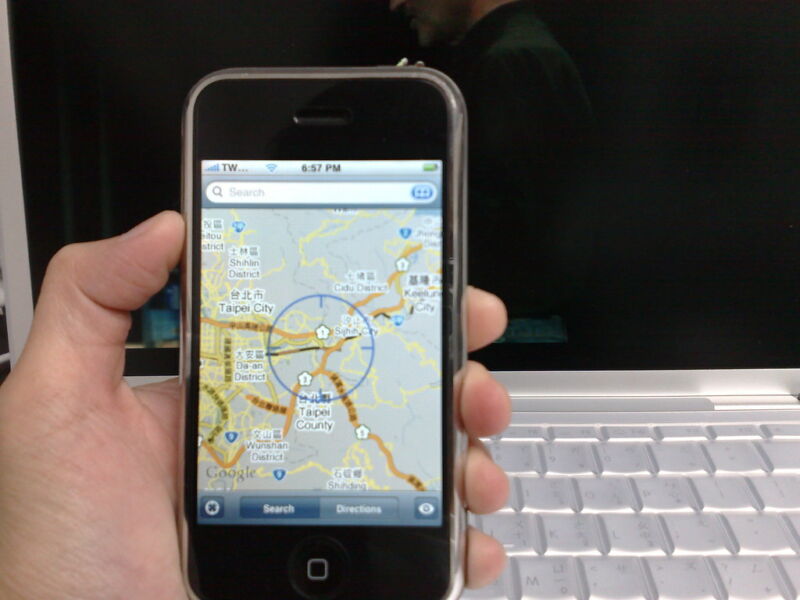

The Nationwide Safety Company is recommending that some authorities staff and folks usually involved about privateness flip off find-my-phone, Wi-Fi, and Bluetooth every time these companies usually are not wanted, in addition to restrict location information utilization by apps.
“Location information may be extraordinarily helpful and should be protected,” an advisory revealed on Tuesday said. “It might reveal particulars concerning the quantity of users in a location, consumer and provide actions, every day routines (consumer and organizational), and can expose in any other case unknown associations between users and places.”
NSA officers acknowledged that geolocation features are enabled by design and are important to mobile communications. The officers additionally admit that the really useful safeguards are impractical for many users. Mapping, location monitoring of misplaced or stolen telephones, routinely connecting to Wi-Fi networks, and health trackers and apps are only a few of the issues that require fine-grained places to work in any respect.
The price of comfort
However these options come at a price. Adversaries might be able to faucet into location information that app builders, promoting companies, and different third events obtain from apps and then retailer in large databases. Adversaries may subscribe to companies akin to these supplied by Securus and LocationSmart, two companies that The New York Instances and KrebsOnSecurity documented, respectively. Each firms both tracked or offered places of clients collected by the cell towers of main mobile carriers.
Not solely did LocationSmart leak this information to anybody who knew a easy trick for exploiting a typical class of web site bug, however a Vice reporter was in a position to acquire the real-time location of a telephone by paying $300 to a distinct service. The New York Instances additionally revealed this sobering function outlining companies that use mobile location information to trace the histories of hundreds of thousands of folks over prolonged durations.
The advisory additionally warns that monitoring typically occurs even when mobile service is turned off, since each Wi-Fi and Bluetooth also can observe places and beam them to 3rd events linked to the Web or with a sensor that’s inside radio vary.
To stop these varieties of privateness invasions, the NSA recommends the next:
- Disable location companies settings on the system.
- Disable radios when they aren’t actively in use: disable BT and flip off Wi-Fi if these capabilities usually are not wanted. Use Airplane Mode when the system isn’t in use. Guarantee BT and Wi-Fi are disabled when Airplane Mode is engaged.
- Apps needs to be given as few permissions as attainable:
- Set privateness settings to make sure apps usually are not utilizing or sharing location information.
- Keep away from utilizing apps associated to location if attainable, since these apps inherently expose consumer location information. If used, location privateness/permission settings for such apps needs to be set to both not enable location information utilization or, at most, enable location information utilization solely whereas utilizing the app. Examples of apps that relate to location are maps, compasses, visitors apps, health apps, apps for locating native eating places, and procuring apps.
- Disable promoting permissions to the best extent attainable:
- Set privateness settings to restrict advert monitoring, noting that these restrictions are on the vendor’s discretion.
- Reset the promoting ID for the system frequently. At a minimal, this needs to be on a weekly foundation.
- Flip off settings (sometimes often called FindMy or Discover My Machine settings) that enable a misplaced, stolen, or misplaced system to be tracked.
- Decrease Internet looking on the system as a lot as attainable, and set browser privateness/permission location settings to not enable location information utilization.
- Use an anonymizing Digital Non-public Community (VPN) to assist obscure location.
- Decrease the quantity of information with location data that’s saved within the cloud, if attainable.
Whether it is vital that location isn’t revealed for a specific mission, take into account the next suggestions:
- Decide a non-sensitive location the place units with wi-fi capabilities may be secured previous to the beginning of any actions. Be sure that the mission website can’t be predicted from this location.
- Depart all units with any wi-fi capabilities (together with private units) at this non-sensitive location. Turning off the system is probably not enough if a tool has been compromised.
- For mission transportation, use automobiles with out built-in wi-fi communication capabilities, or flip off the capabilities, if attainable.
Cell phone use means being tracked
Patrick Wardle, a macOS and iOS safety knowledgeable and a former hacker for the NSA, stated the suggestions are a “nice begin” however that individuals who observe the suggestions shouldn’t take into account them something near absolute safety.
“So long as your telephone is connecting to cell towers, which it has to with the intention to use the cell community… AFAIK that’s going to disclose your location,” Wardle, who’s a safety researcher on the macOS and iOS enterprise administration agency Jamf, informed me. “It, as at all times, is a tradeoff between performance/usability and safety, however mainly in the event you use a telephone, assume you can be tracked.”
He stated that latest variations of iOS make it simple to observe many of the suggestions. The primary time users open an app, they get a immediate asking if they need the app to obtain location information. If the consumer says sure, the entry can solely occur when the app is open. That stops apps from amassing information within the background over prolonged durations of time. iOS additionally does a very good job of randomizing MAC addresses that, when static, present a novel identifier for every system.
More moderen variations of Android additionally enable the identical location permissions and, when working on particular {hardware} (which often come at a premium value), additionally randomize MAC addresses.
Each OSes require users to manually flip off advert personalization and reset promoting IDs. In iOS, folks can do that in Settings > Privateness > Promoting. The slider for Restrict Advert Monitoring needs to be turned on. Just under the slider is the Reset Promoting Identifier. Press it and select Reset Identifier. Whereas within the Privateness part, users ought to assessment which apps have entry to location information. Ensure that as few apps as attainable have entry.
Change some settings
In Android 10, users can restrict advert monitoring and reset promoting IDs by going to Settings > Privateness and clicking Advertisements. Each the Reset Promoting ID and Decide Out of Advertisements personalization are there. To assessment which apps have entry to location information, go to Settings > Apps & notifications > Superior > Permission Supervisor > Location. Android permits apps to gather information constantly or solely when in use. Enable solely apps that really require location information to have entry, and then attempt to restrict that entry to solely when in use.
Tuesday’s advisory additionally recommends folks restrict sharing location data in social media and distant metadata exhibiting delicate places earlier than posting photos. The NSA additionally warns about location information being leaked by automotive navigation techniques, wearable units akin to health units, and Web-of-things units.
The recommendation is aimed primarily at army personnel and contractors whose location information might compromise operations or put them at private threat. However the data may be helpful to others, so long as they take into account their menace mannequin and weigh the suitable dangers versus the advantages of varied settings.